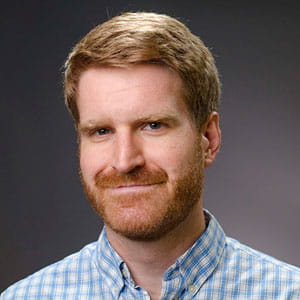Remembering Forgotten Soldiers: Drexel Employee Honors Deceased Veterans

One morning in late October, Curt Anderson grabbed the shoulder of a young man wearing Army fatigues who walked past in Drexel’s Main Building.
“Hey,” Anderson said, pausing to reach out and shake the man’s hand. “Thank you for your service.”
Things would have been different in the early 1970s, Anderson said, when he served in the Navy. Back then, if someone — even an older veteran, he said — saw that he was serving in the armed forces, he was as likely to turn up his nose or mutter an insult as he was to offer thanks.
“They didn’t like us, man,” Anderson said of himself and others who served during the Vietnam War era. “The American people didn’t like us.”
Anderson, who has worked for the last 14 years for the Office of Information Resources and Technology on Drexel’s Center City Campus, never forgot what it was like to feel forgotten by the country he’d served.
This helps explain why on a Wednesday in September in North Hanover, N.J., Anderson played a song on his bagpipes at a burial for 25 men he’d never met — veterans from different American conflicts whose cremated remains had sat on funeral-home shelves, many of them for decades, unclaimed.
As part of an effort called New Jersey’s Mission of Honor, Anderson and other volunteers have helped reunite veterans’ cremains with family members who did not know what had happened to their relatives who had served and, when no family members could be found, provided a proper burial themselves.
The bulk of the veterans they honor served in World War II and Vietnam, though some were in World War I. Most of Anderson’s fellow Mission of Honor volunteers are Vietnam veterans, though.
Anderson’s Vietnam Veterans of America (VVA) chapter was one of the groups that helped form the Mission of Honor after, in 2007, “60 Minutes” aired a segment about the unclaimed ashes of veterans that sometimes sit in storage in funeral homes for decades, unspoken for. He was a founding member, joining VVA Chapter 899 in 2002.
“If you could put the camaraderie in a bottle and sell it, you’d be rich,” Anderson said.
He had enlisted in September 1971 as a 17-year-old fresh out of Cardinal Dougherty High School in Philadelphia, with the permission of his parents. His older brother and his father had served in the Navy before him.
While working on a computer mainframe on the USS Hunley, a ship that tended to nuclear submarines in the Pacific, he was set on the career path he’s taken since, working in information technology.
“The machines were a lot bigger back then,” Anderson said with a laugh.
When he left the Navy in 1975, he initially decided not to join any veterans organizations, he said, because older veterans tended to resent him and his peers for “losing” the conflict in Vietnam. But he agreed to join the newly forming VVA chapter.
“What made me join it was the motto: ‘Never again will one generation of veterans abandon another,’” Anderson said.
He and his comrades took that motto to heart after learning of those unclaimed remains. After efforts by the Mission of Honor groups, then-New Jersey Gov. Jon Corzine in 2009 signed a bill allowing veterans organizations to receive those unclaimed remains if no family members could be found.
Since then, the volunteers have reunited the remains of 188 veterans with their families and buried 105 who went unclaimed.
Many of the veterans died homeless, alone in nursing homes or perhaps in prison. On average, Anderson said, their remains have gone unclaimed for more than two decades.
For their burials, all at the Doyle Memorial Cemetery in Burlington County, each veteran’s ashes are placed in a mahogany urn with his name, dates of life and rank and date of service. A minister gives a eulogy for each one. The volunteers, many of whom rumble in on motorcycles from all over New Jersey, present the colors, play taps and give a 21-gun salute.
And Anderson is the one who plays “Flowers of the Forest,” an old Scottish lament, on the bagpipes. (He taught himself to play about 20 years ago.)
At the most recent burial, in September, seven hearses carried in the ashes of 25 veterans.
Things are a lot different now from how they were in the ‘70s, Anderson said. Service members can wear their uniforms in places like the Drexel campus and be met with displays of thanks and respect, rather than sneers. Even Anderson and his Vietnam-era compatriots are appreciated now, he said. As for the ones who didn’t live to see that happen, Anderson and others are making sure they can at least be honored now — not forgotten.
“They’re all our brothers,” Anderson said. “I don’t think any veteran should be left sitting on a shelf.”
Drexel News is produced by
University Marketing and Communications.

